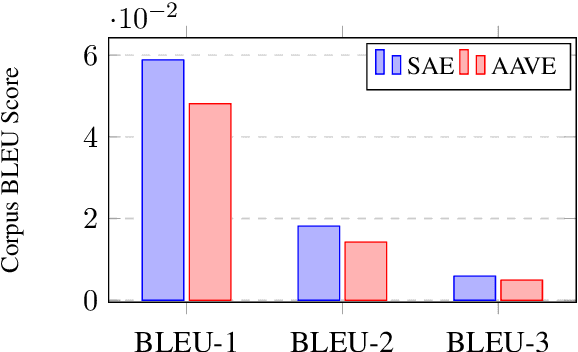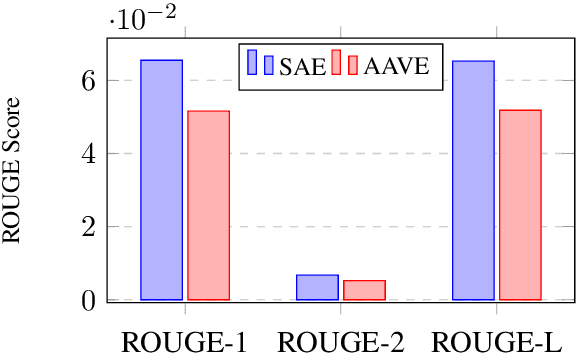Investigating African-American Vernacular English in Transformer-Based Text Generation
Paper and Code
Oct 29, 2020



The growth of social media has encouraged the written use of African American Vernacular English (AAVE), which has traditionally been used only in oral contexts. However, NLP models have historically been developed using dominant English varieties, such as Standard American English (SAE), due to text corpora availability. We investigate the performance of GPT-2 on AAVE text by creating a dataset of intent-equivalent parallel AAVE/SAE tweet pairs, thereby isolating syntactic structure and AAVE- or SAE-specific language for each pair. We evaluate each sample and its GPT-2 generated text with pretrained sentiment classifiers and find that while AAVE text results in more classifications of negative sentiment than SAE, the use of GPT-2 generally increases occurrences of positive sentiment for both. Additionally, we conduct human evaluation of AAVE and SAE text generated with GPT-2 to compare contextual rigor and overall quality.
 Add to Chrome
Add to Chrome Add to Firefox
Add to Firefox Add to Edge
Add to Edge